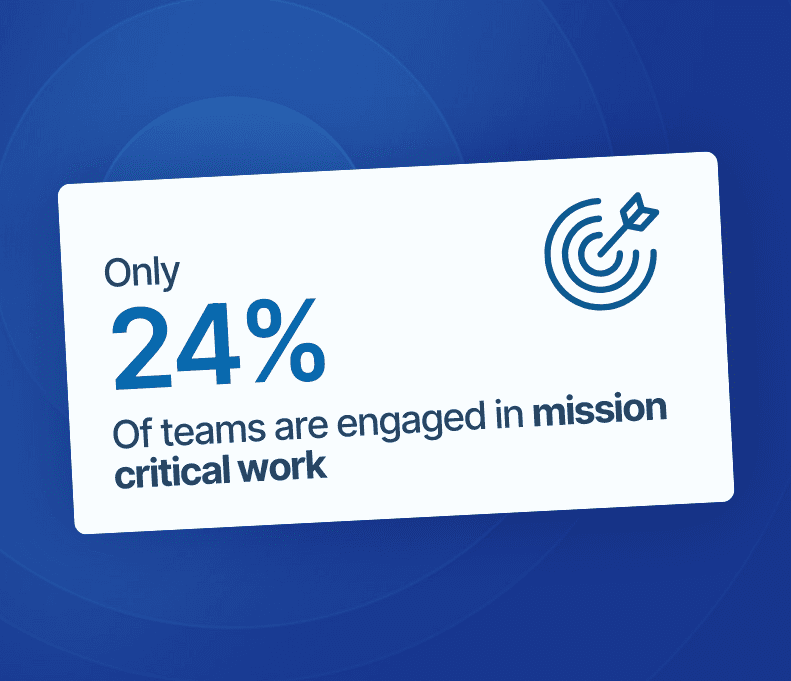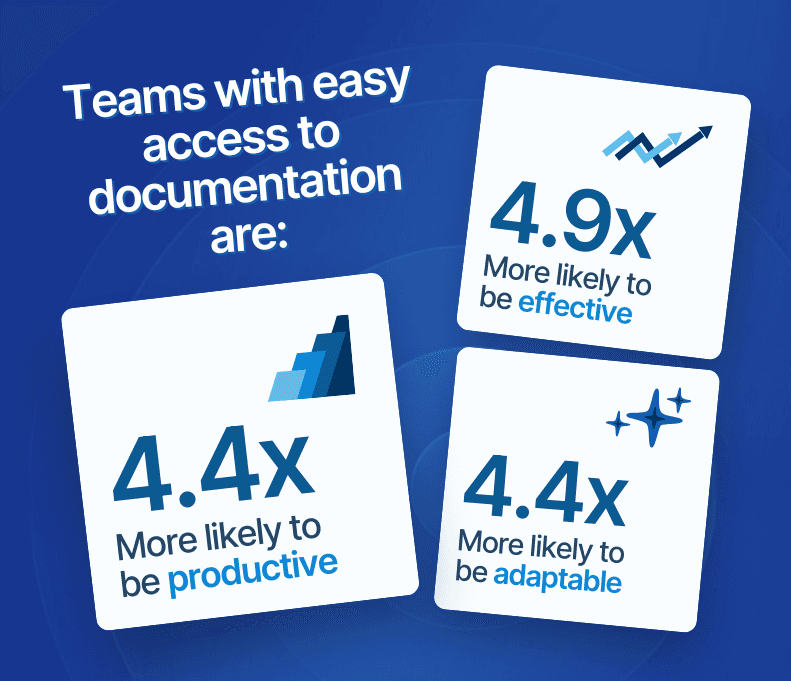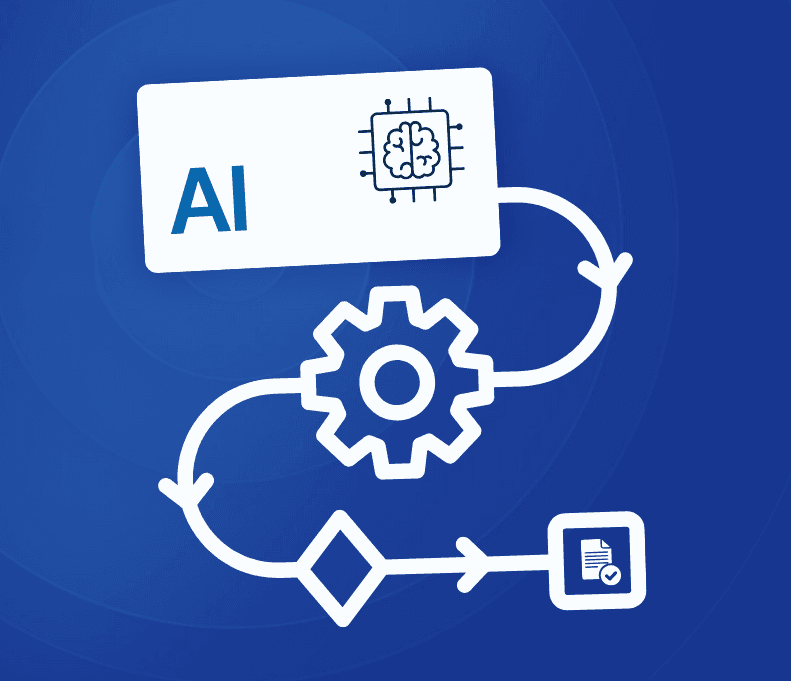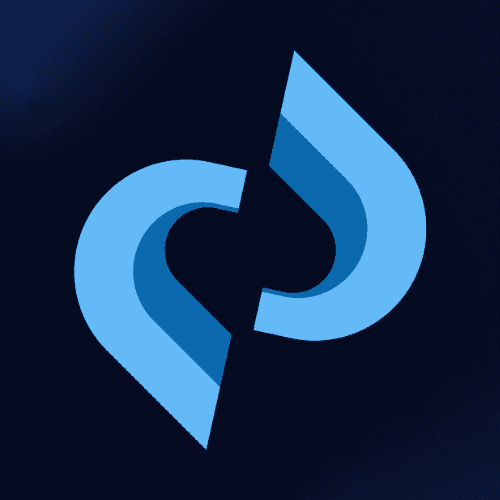
Reflecting on the Atlassian 2024
State of Teams Report
Reflecting on the Atlassian 2024
State of Teams Report
Reflecting on the Atlassian 2024
State of Teams Report
Processes are integral to every business. Atlassian's State of Teams Report highlights a critical choice companies face: invest time in creating thorough process documentation, or risk ineffective collaboration.
The report shows that Fortune 500 companies lose 25 billion work hours yearly due to poor collaboration. Fluency addresses part of this challenge by automating process documentation, aligning with the report's emphasis on accessible knowledge.
Every business has processes, and most face a tough choice: spend valuable time manually creating step-by-step guides and SOPs, or skip documentation altogether.
Fluency removes this tradeoff by automating documentation. Start today with these 6 documents you can easily automate.
Atlassian State of Teams 2024
Read the full report at the Atlassian website below.
Key Takeaways
Here are our top six key takeaways from the Atlassian 2024
State of Teams Report
Ineffective Collaboration
25 billion work hours lost annually in Fortune 500 companies
No Mission Critical Focus
Only 24% of teams are doing mission critical work
Self Serve Information
Teams are an estimate of 4.9x more effective with accessible knowledge
Meeting Culture
Management in poor meeting culture organisations are spending 50% more unnecessary time in meetings
AI = Adaptability
Teams that are using and embracing AI are 1.9x more adaptable than those that aren't
Continuous Improvement
Teams are 4.7x more adaptable when prioritising process improvement
Key Takeaways
Here are our top six key takeaways from the Atlassian 2024
State of Teams Report
Ineffective Collaboration
25 billion work hours lost annually in Fortune 500 companies
No Mission Critical Focus
Only 24% of teams are doing mission critical work
Self Serve Information
Teams are an estimate of 4.9x more effective with accessible knowledge
Meeting Culture
Management in poor meeting culture organisations are spending 50% more unnecessary time in meetings
AI = Adaptability
Teams that are using and embracing AI are 1.9x more adaptable than those that aren't
Continuous Improvement
Teams are 4.7x more adaptable when prioritising process improvement
Key Takeaways
Here are our top six key takeaways from the Atlassian 2024
State of Teams Report
Ineffective Collaboration
25 billion work hours lost annually in Fortune 500 companies
No Mission Critical Focus
Only 24% of teams are doing mission critical work
Self Serve Information
Teams are an estimate of 4.9x more effective with accessible knowledge
Meeting Culture
Management in poor meeting culture organisations are spending 50% more unnecessary time in meetings
AI = Adaptability
Teams that are using and embracing AI are 1.9x more adaptable than those that aren't
Continuous Improvement
Teams are 4.7x more adaptable when prioritising process improvement
Teams aren't focused on what matters
Fortune 500 companies lose 25 billion work hours annually due to ineffective collaboration, with only 24% of teams engaged in mission-critical work.
These numbers represent a critical inflection point for most businesses. The sheer scale of lost productivity shows a systemic issue in how teams operate and collaborate.
At Fluency, we see this as a call to action. The fact that only a quarter of team efforts are directed towards mission-critical work suggests a misalignment between daily activities and strategic goals. This is not only ineffective for management, but a poor experience for teams.


The impact of easy access to documentation
Surveyed teams with self-serve information were found to be 4.9x more effective, 4.4x more productive, and 4.4x more adaptable.
These findings validate a core tenet of our philosophy at Fluency: knowledge accessibility is a key driver of team performance.
This report also suggests that self-serve information isn't just a nice-to-have; it's a critical factor in team success.
We've long advocated for breaking down information silos and making knowledge easily accessible. However, the challenge has always been in creating and maintaining this information efficiently.


AI = Access to knowledge + Goal Clarity
At Fluency, we're excited by the emerging role of AI as a game-changer in team performance.
Our focus on bringing AI into the process documentation space aligns perfectly with Atlassian's findings, validating our approach.
We envision AI taking on an even more significant role in process orchestration moving forward. It's not just about documenting processes anymore; AI will help pinpoint inefficiencies, offer improvement suggestions, and even anticipate potential issues before they surface.
However, we firmly believe in the irreplaceable value of human insight. Our goal is to develop software that empowers the human decision-maker in this AI-augmented landscape.
By adopting a process-first approach, we enable teams to easily access crucial information. Building on this foundation, we're crafting a comprehensive process orchestration platform.
Ultimately, this will pave the way for teams to explore automation opportunities.
This journey - from process documentation to orchestration to automation - represents our vision for the future of work. We're building Fluency for the human in the loop.


Mission Critical Work
The tasks that matter
Teams aren't focused on what matters
Fortune 500 companies lose 25 billion work hours annually due to ineffective collaboration, with only 24% of teams engaged in mission-critical work.
These numbers represent a critical inflection point for most businesses. The sheer scale of lost productivity shows a systemic issue in how teams operate and collaborate.
At Fluency, we see this as a call to action. The fact that only a quarter of team efforts are directed towards mission-critical work suggests a misalignment between daily activities and strategic goals. This is not only ineffective for management, but a poor experience for teams.
By focusing on streamlining processes and improving collaboration, we can help teams reclaim those lost hours and redirect energy towards truly impactful work.
This resonates deeply with our first ever mission statement of "making more time for the tasks that matter." We believe that by streamlining processes and enhancing collaboration, we can help shift this balance. This inefficiency isn't just a Fortune 500 problem. While the scale might be different, businesses of all sizes grapple with similar challenges. Our goal is to democratise collaboration and knowledge transfer, with processes at the centre.

Documentation
Self Serve Information is more important than ever
The impact of easy access to documentation
Surveyed teams with self-serve information were found to be 4.9x more effective, 4.4x more productive, and 4.4x more adaptable.
These findings validate a core tenet of our philosophy at Fluency: knowledge accessibility is a key driver of team performance.
This report also suggests that self-serve information isn't just a nice-to-have; it's a critical factor in team success.
We've long advocated for breaking down information silos and making knowledge easily accessible. However, the challenge has always been in creating and maintaining this information efficiently.
This is where automated process documentation helps. By removing the tedium from documentation creation, we're not just saving time; we're enabling a cultural shift towards open information sharing.
Teams that can quickly access and apply relevant information are better positioned to pivot and respond to new challenges. This aligns perfectly with our vision of creating agile, responsive teams through better process management.

HPT
High Performance Teams
From Good to Great
Successful teams set clear goals, build daily priority-setting rituals, and use meetings strategically to focus on high-impact work.
This underscores the importance of intentionality in team operations. High-performing teams don't just work hard; they work smart by continually aligning their efforts with overarching goals.
At Fluency, we believe that clear, accessible process documentation serves as a foundation for these high-performing behaviours. When teams have a shared understanding of how work gets done, they can more easily set meaningful goals and priorities.
We want to support this by making it simple to create, update, and share process knowledge.
The emphasis on strategic use of meetings is particularly relevant in today's remote and hybrid work environments.
By providing clear, always-up-to-date process documentation, we aim to reduce the need for repetitive explanation meetings, freeing up time for more strategic, high-impact discussions.
We really just want to stop those "let's hop on a quick call"s.
Processes
The best teams are process-first
Long term impact > Short term results
Top teams prioritise improving processes, practices, and tools, focusing on long-term impact over short-term goals. Reflection: This finding is at the heart of Fluency's mission.
We've always championed a process-first approach, believing that well-designed processes are the backbone of efficient, scalable operations.
The report's emphasis on long-term impact aligns perfectly with our vision of continuous process improvement. However, we recognise that adopting a process-first mindset can be challenging, especially for teams accustomed to reactive, ad-hoc ways of working.
This is why we're building the next features of Fluency around making process mapping and improvement accessible, intuitive, and collaborative.
By lowering the barriers to process documentation and analysis, we aim to help more teams transition to this high-performing, process-centric approach. Moreover, we see the focus on tools as validation of our platform's importance.
In today's digital-first work environment, the right tools aren't just facilitators of work – they're critical infrastructure. By providing a comprehensive process orchestration platform, we're equipping teams with the tools they need to operate at their highest potential.
AI
Moving forward

AI = Access to knowledge + Goal clarity
At Fluency, we're excited by the emerging role of AI as a game-changer in team performance.
Our focus on bringing AI into the process documentation space aligns perfectly with Atlassian's findings, validating our approach.
We envision AI taking on an even more significant role in process orchestration moving forward. It's not just about documenting processes anymore; AI will help pinpoint inefficiencies, offer improvement suggestions, and even anticipate potential issues before they surface.
However, we firmly believe in the irreplaceable value of human insight. Our goal is to develop software that empowers the human decision-maker in this AI-augmented landscape.
By adopting a process-first approach, we enable teams to easily access crucial information. Building on this foundation, we're crafting a comprehensive process orchestration platform.
Ultimately, this will pave the way for teams to explore automation opportunities.
This journey - from process documentation to orchestration to automation - represents our vision for the future of work. We're building Fluency for the human in the loop.
The tasks that matter
Fortune 500 companies lose 25 billion work hours annually due to ineffective collaboration, with only 24% of teams engaged in mission-critical work.
These numbers represent a critical inflection point for most businesses. The sheer scale of lost productivity shows a systemic issue in how teams operate and collaborate.
At Fluency, we see this as a call to action. The fact that only a quarter of team efforts are directed towards mission-critical work suggests a misalignment between daily activities and strategic goals. This is not only ineffective for management, but a poor experience for teams.


Accessing key info
Surveyed teams with self-serve information were found to be 4.9x more effective, 4.4x more productive, and 4.4x more adaptable.
These findings validate a core tenet of our philosophy at Fluency: knowledge accessibility is a key driver of team performance.
This report also suggests that self-serve information isn't just a nice-to-have; it's a critical factor in team success.
We've long advocated for breaking down information silos and making knowledge easily accessible. However, the challenge has always been in creating and maintaining this information efficiently.


Successful teams set clear goals, build daily priority-setting rituals, and use meetings strategically to focus on high-impact work.
This underscores the importance of intentionality in team operations. High-performing teams don't just work hard; they work smart by continually aligning their efforts with overarching goals.
At Fluency, we believe that clear, accessible process documentation serves as a foundation for these high-performing behaviours. When teams have a shared understanding of how work gets done, they can more easily set meaningful goals and priorities.
We want to support this by making it simple to create, update, and share process knowledge.
The emphasis on strategic use of meetings is particularly relevant in today's remote and hybrid work environments.
By providing clear, always-up-to-date process documentation, we aim to reduce the need for repetitive explanation meetings, freeing up time for more strategic, high-impact discussions.
We really just want to stop those "let's hop on a quick call"s.
Long term impact > Short term results
Top teams prioritise improving processes, practices, and tools, focusing on long-term impact over short-term goals. Reflection: This finding is at the heart of Fluency's mission.
We've always championed a process-first approach, believing that well-designed processes are the backbone of efficient, scalable operations.
The report's emphasis on long-term impact aligns perfectly with our vision of continuous process improvement. However, we recognise that adopting a process-first mindset can be challenging, especially for teams accustomed to reactive, ad-hoc ways of working.
This is why we're building the next features of Fluency around making process mapping and improvement accessible, intuitive, and collaborative.
By lowering the barriers to process documentation and analysis, we aim to help more teams transition to this high-performing, process-centric approach. Moreover, we see the focus on tools as validation of our platform's importance.
In today's digital-first work environment, the right tools aren't just facilitators of work – they're critical infrastructure. By providing a comprehensive process orchestration platform, we're equipping teams with the tools they need to operate at their highest potential.
From Good to Great
From Good to Great
Successful teams set clear goals, build daily priority-setting rituals, and use meetings strategically to focus on high-impact work.
This underscores the importance of intentionality in team operations. High-performing teams don't just work hard; they work smart by continually aligning their efforts with overarching goals.
At Fluency, we believe that clear, accessible process documentation serves as a foundation for these high-performing behaviours. When teams have a shared understanding of how work gets done, they can more easily set meaningful goals and priorities.
We want to support this by making it simple to create, update, and share process knowledge.
The emphasis on strategic use of meetings is particularly relevant in today's remote and hybrid work environments.
By providing clear, always-up-to-date process documentation, we aim to reduce the need for repetitive explanation meetings, freeing up time for more strategic, high-impact discussions.
We really just want to stop those "let's hop on a quick call"s.
AI
AI
Moving forward
Moving forward

AI = Access to knowledge + Goal clarity
At Fluency, we're thrilled by the emerging role of AI as a game-changer in team performance.
Our focus on bringing AI into the final stages of process documentation aligns perfectly with Atlassian's findings, validating our approach.
We envision AI taking on an even more significant role in process orchestration moving forward. It's not just about documenting processes anymore; AI will help pinpoint inefficiencies, offer improvement suggestions, and even anticipate potential issues before they surface.
However, we firmly believe in the irreplaceable value of human insight. Our goal is to develop software that empowers the human decision-maker in this AI-augmented landscape.
By adopting a process-first approach, we enable teams to easily access crucial information. Building on this foundation, we're crafting a comprehensive process orchestration platform.
Ultimately, this will pave the way for teams to explore automation opportunities.
This journey - from process documentation to orchestration to automation - represents our vision for the future of work. We're building Fluency for the human in the loop.


At Fluency, we're excited by the emerging role of AI as a game-changer in team performance.
Our focus on bringing AI into the final stages of process documentation aligns perfectly with Atlassian's findings, validating our approach.
We envision AI taking on an even more significant role in process orchestration moving forward. It's not just about documenting processes anymore; AI will help pinpoint inefficiencies, offer improvement suggestions, and even anticipate potential issues before they surface.
However, we firmly believe in the irreplaceable value of human insight. Our goal is to develop software that empowers the human decision-maker in this AI-augmented landscape.
By adopting a process-first approach, we enable teams to easily access crucial information. Building on this foundation, we're crafting a comprehensive process orchestration platform.
Ultimately, this will pave the way for teams to explore automation opportunities.
This journey - from process documentation to orchestration to automation - represents our vision for the future of work. We're building Fluency for the human in the loop.

Get started today
Schedule a time with our account management team to discuss our Enterprise plans, or get started today with a 7 day free trial.

Get started today
Schedule a time with our account management team to discuss our Enterprise plans, or get started today with a 7 day free trial.
Fluency

Fluency

Resources

Speak your business, Fluently.
Based in Melbourne, Australia.
Terms of use
Privacy
Trust


Get started today
Schedule a time with our account management team to discuss our Enterprise plans, or get started today with a 7 day free trial.

Get started today
Schedule a time with our account management team to discuss our Enterprise plans, or get started today with a 7 day free trial.